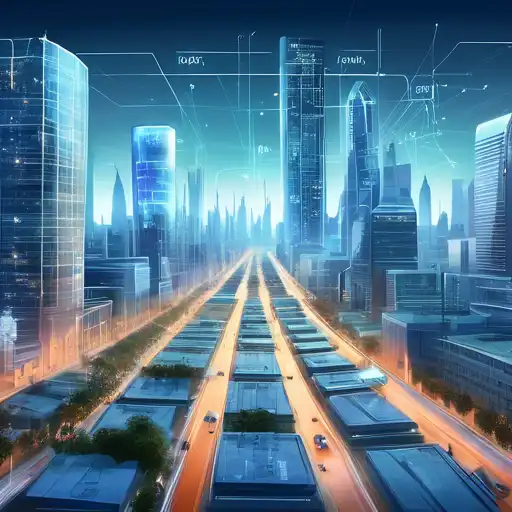Introduction to IoT and Smart Cities
The Internet of Things (IoT) is revolutionizing the way cities operate, making them smarter and more efficient. By connecting devices and systems across urban environments, IoT technology enables real-time data collection and analysis, leading to improved decision-making and enhanced quality of life for residents.
Key Areas Where IoT is Making an Impact
From traffic management to waste disposal, IoT is transforming various aspects of city living. Below are some of the key areas where IoT is making a significant difference:
- Traffic and Transportation: IoT sensors and smart traffic lights reduce congestion and improve public transportation systems.
- Energy Efficiency: Smart grids and meters optimize energy use, reducing costs and environmental impact.
- Public Safety: Surveillance cameras and emergency response systems enhance security and safety.
- Waste Management: Smart bins and recycling systems streamline waste collection and processing.
Benefits of IoT in Urban Development
The integration of IoT into city infrastructure offers numerous benefits, including:
- Reduced operational costs through automation and efficiency.
- Improved sustainability by minimizing resource waste.
- Enhanced citizen engagement through interactive platforms and services.
- Increased safety and security with advanced monitoring systems.
Challenges and Considerations
Despite its advantages, the implementation of IoT in smart cities faces several challenges, such as data privacy concerns, the need for robust cybersecurity measures, and the high initial investment required. Addressing these issues is crucial for the successful adoption of IoT technologies.
Future Prospects
The future of smart cities looks promising, with IoT at the core of urban innovation. As technology advances, we can expect even greater integration of IoT solutions, leading to more sustainable, efficient, and livable cities. For more insights into the future of urban development, explore our Future of Urban Living section.
Conclusion
IoT is undeniably transforming urban landscapes, making cities smarter and more responsive to the needs of their inhabitants. By leveraging IoT technology, cities can achieve unprecedented levels of efficiency, sustainability, and quality of life. The journey towards fully realized smart cities is ongoing, but the potential is limitless.
